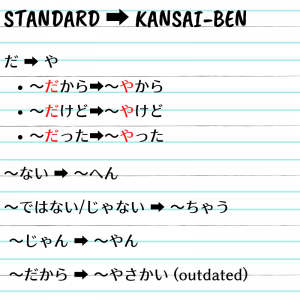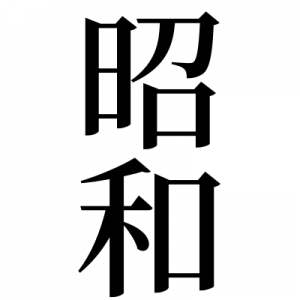This post introduces a variety of interesting Japanese idioms that are related to plants!
Table of Contents
Meaning of 道草を食う(michikusa wo kuu)
道草を食う literally means ‘to eat grass on the road’. Figuratively, it means you do something random/unplanned/irrelevant on the way to the destination. This idiom illustrates a horse eating grass and wasting time on the way.
Example
コンビニに寄(よ)ったり、街(まち)の写真(しゃしん)を撮(と)ったりして道草を食ってたら、遅刻(ちこく)してしまった
I did unplanned things on the way, like stopping at a convenience store and taking pictures of the city, and I ended up being late.
Meaning of 高嶺の花 (takane no hana)
高嶺の花 literally means ‘A flower on top of a tall mountain’. Figuratively, it describes something/someone that is way out of your league and very difficult to reach, just like a flower on the mountaintop. To illustrate the similar concept in English, it would be something like “sweet grapes” in contrast to “sour grapes”. The most common usage of this idiom is for men to describe a beautiful girl whom they feel underqualified to have a date with. For instance, guys at the bottom of the school hierarchy would look up at the hottest girl at school, like gazing at the beautiful flower on the mountaintop from the foot. Having said that, this idiom can also be used to describe male persons or things as well, as in the second example below.
Example
彼女(かのじょ)は高嶺の花だから、告白(こくはく)なんて出来(でき)ないよ
Because she is too hot for me, I am never able to confess my feelings to her.
私にはエルメスなんて高嶺の花よ
For me, Hermes is too expensive.
* For more explanations (e.g, synonyms and related words), see the previous post below.
https://takashionary.com/takane-no-hana
Meaning of 瓜二つ(uri hutatsu)
瓜二つ literally means ‘two gourds (winter melons)’. It figuratively means something or someone looks very alike. The equivalent English expression would be “as alike as two peas in a pod.”
Example
あの双子 (ふたご) は瓜二つだ
That twins look very alike/are as alike as two peas in a pod
Meaning of 花を持たせる (hana wo motaseru)
花を持たせる literally means ‘to let (someone) have flowers’. Figuratively it indicates the act of generously letting someone look great and commendable. Here are some example cases when people let others “have flowers”:
Example Cases
- Let someone take credit/chance for success
- Deliberately lose a competition
- Turn a blind eye. i.e., pretend you do not notice something negative done by someone
In Japan, people often allow Senpai (older/higher-raking people) to “have flowers”, as to build a good relationship, to receive preferential treatment, etc. Another way of saying “花を持たせる” is “〜を立(た)てる”, which literally means “to make (someone) stand”.
Example
「これも全部(ぜんぶ) 田中先輩(せんぱい)のおかげです」と言(い)って、先輩 に花を持たせた
I said, “This is all thanks to Tanaka-Senpai” to let him “have flowers” (take credit for success)
ここは上司(じょうし)を立てるべきだろう
Probably we should let our boss look great here.
Meaning of 根に持つ (ne ni motsu)
根に持つ literally means ‘have (something) at the root’. Figuratively it means you hold on to a bad memory about someone for a long time. The similar English expression is probably “to hold a grudge (against someone)”, but the tone of “根に持つ” can be lighter and less serious than that.
Example
3年前(ねんまえ)、彼(かれ)が私(わたし)のメッセージを無視(むし)したことをまだ根に持っている
I still vividly remember (and am annoyed) that he ignored my message three years ago.
Meaning of 根も葉もない (ne mo ha mo nai)
根も葉もない literally means ‘no root or leaves’. Figuratively it means that something is utterly baseless and lacking in supporting facts or grounds. Here, the kanji character 根 (root) refers to the basis of a statement, and it is also used in the word 根拠 (こんきょ) meaning “ground/basis”.
Example
ゴシップ誌(し)は、根も葉もない記事(きじ)をよく掲載(けいさい)している
Gossip magazines often publish baseless articles.
Meaning of ゴマをする (goma wo suru)
ゴマをする literally means ‘to grind sesame seeds’. Figuratively, it means to butter up someone and act very obsequiously. This word is so famous that even the gesture of grinding (rotate a closed hand on the palm of the other hand) refers to the act of acting obsequiously. One of the theories about its origin says that this meaning has derived from the sticky nature of the ground sesame seeds; they stick to anything just like a brown-noser always tagging along with high-ranking people.
Example
彼は昇進 (しょうしん) するためなら、進(すす)んでゴマをする狡猾(こうかつ)な人(ひと)だ
He is such a cunning person who is willing to act obsequiously to get promoted.
社長(しゃちょう)といるときは、いつもこうだよ(ゴマをする動作をしながら)
Whenever I’m with the company president, I’m always like this (with the gesture of grinding, meaning the speaker always acts obsequiously towards the company president)
See also




Leave a Reply